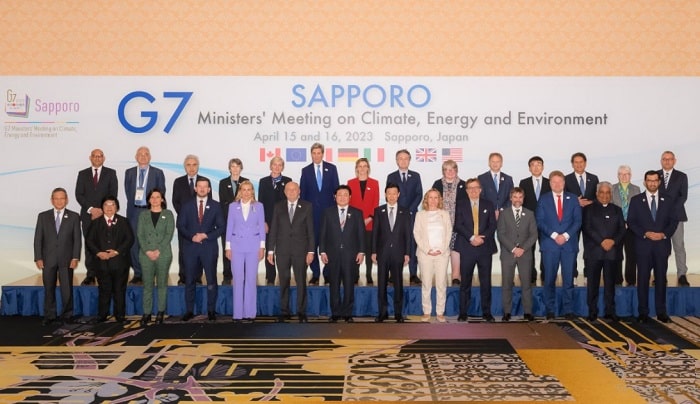G7 leaders expressed concern over global renewable power deployment rates, citing the latest findings from IRENA’s World Energy Transitions Outlook Preview 2023. The report warns that there is a need for a fundamental course correction in the energy transition to keep the 1.5°C target within reach.
Targets in the G7 Climate, Energy and Environment Ministers’ Communiqué reflect IRENA estimates for the group, calling for 150 GW offshore wind and 1 TW Solar PV by 2030. Through the communiqué, IRENA was also requested to prepare analysis on the innovation and sustainability of floating offshore wind to infom the G7’s work. IRENA is also working with the G7 Presidency to produce a report on sustainable production and trade of hydrogen in remote and developing regions.
“The G7’s commitment to fast-tracking renewable energy deployment is a welcome step that sends a strong signal to the international community that accelerating the energy transition is a must,” said IRENA Director-General Francesco La Camera. “IRENA will continue its collaboration with the G7 countries in implementing their goals and targets.”
The plan, outlined by the Communiqué, involves accelerating the deployment of all renewable energy sources, including solar, onshore/offshore wind, hydropower, geothermal, sustainable biomass, biomethane, and tidal power. G7 countries will also invest in the development and deployment of next-generation technologies and establish secure, sustainable, and resilient supply chains.
Additionally, the G7 Communiqué requested IRENA, in partnership with the Equality Advisory Council, Clean Energy Ministerial (CEM) and the International Energy Agency (IEA), to work with Members on tracking their progress on gender balance.
The G7 is composed of Canada, France, Germany, Italy, Japan, the United Kingdom, and the United States. Representatives of the European Union also attend meetings.





































